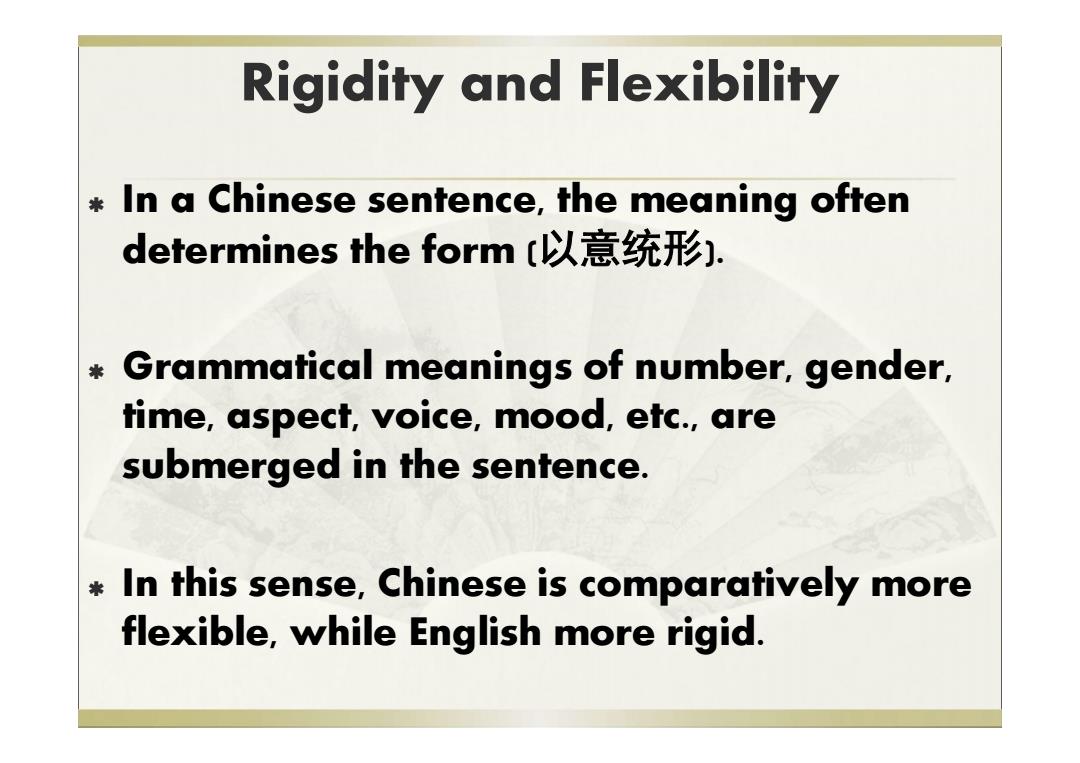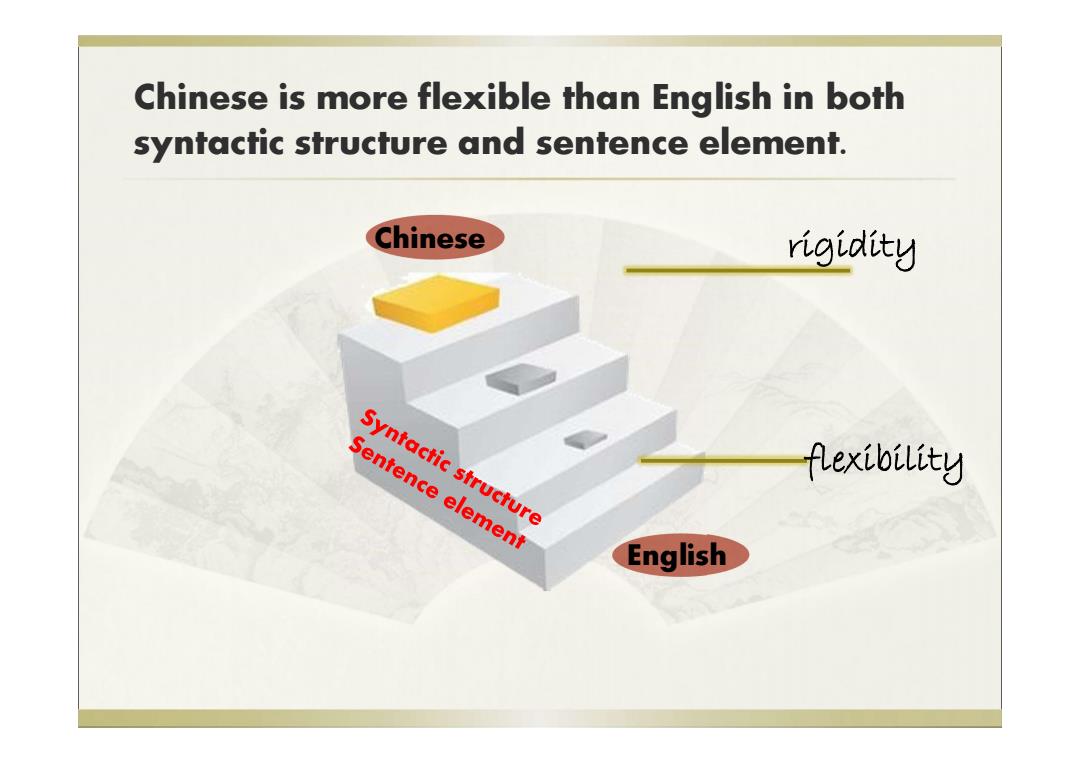
Rigidity and Flexibility In a Chinese sentence,the meaning often determines the form以意统形. Grammatical meanings of number,gender, time,aspect,voice,mood,etc.,are submerged in the sentence. In this sense,Chinese is comparatively more flexible,while English more rigid
Rigidity and Flexibility In a Chinese sentence, the meaning often determines the form (以意统形). Grammatical meanings of number, gender, time, aspect, voice, mood, etc., are submerged in the sentence. In this sense, Chinese is comparatively more flexible, while English more rigid

Chinese is more flexible than English in both syntactic structure and sentence element. Chinese rigidity Syntactic structure Sentence element flexibility English
Chinese is more flexible than English in both syntactic structure and sentence element. Chinese English rigidity flexibility

Shared sentence structures
Shared sentence structures

1.SV He agreed. The baby is sleeping. 春天终于来到了。 米 呀!凉风散了。树叶儿上的残滴,映着月儿, 好似荧光千点,闪闪烁烁的动着
1. SV He agreed. The baby is sleeping. 春天终于来到了。 呀!凉风散了。树叶儿上的残滴,映着月儿, 好似荧光千点,闪闪烁烁的动着

2.SVO I live a happy life. I shall try my best *我们取得了又一个胜利。 *他不断地攻击他们,不肯与他们共同生存在同 一个天空下面
2. SVO I live a happy life. I shall try my best. 我们取得了又一个胜利。 他不断地攻击他们,不肯与他们共同生存在同 一个天空下面